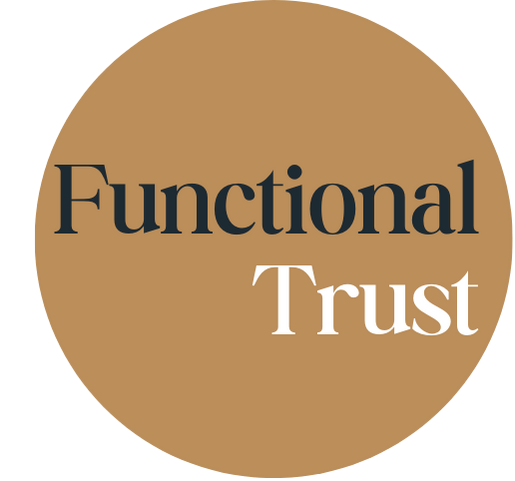Picture this: a Formula 1 car—a masterpiece of engineering designed for maximum speed and performance—trying to tear down a pothole-riddled highway. You can rev the engine, push the gas pedal to the floor, and crank up the horsepower, but the car isn’t going anywhere fast. Why? It’s not because the car isn’t powerful enough. It’s because the road is filled with friction, with obstacles that slow it down no matter how fast it could go. This is the key to understanding efficiency, not just for machines but for people too.
The same principle applies to the operating system of your life. You are an engine with your own horsepower, talent, and strengths. But when you’re not achieving at the speed or level you’re aiming for, it’s easy to think, I just need more power. But no amount of firepower is going to help if the road you’re driving on is full of friction points that are constantly slowing you down.
The Real Source of the Problem: Friction, Not Power
Focusing solely on adding more horsepower—working harder, longer, or adding more skills—is like trying to race down that pothole-ridden road. The real issue is that friction is in the way. These are the barriers, inefficiencies, and weaknesses in your personal operating system. The road is rough because you’ve got unresolved problems in the way. Maybe it’s a lack of competence in a key area, maybe it’s unreliability in how you handle your commitments, or maybe it’s a gap in sincerity that’s creating distrust. No matter how strong or fast you are in other areas, those weaknesses will constantly slow you down.
Just like the F1 car, the key isn’t to add more horsepower; it’s to smooth out the road.

Understanding Your Archetypes: Strengths, Neutral Zones, and Weaknesses
Think of yourself in terms of archetypes. You have one archetype that you excel in—it’s your powerhouse, your source of competence, and the area where you shine. Then, there’s another archetype that you are proficient in, but indifferent toward. It’s not really where you stand out, but it doesn’t slow you down either. It’s neutral.
But then there’s your weak archetype. This is where the friction lives. It’s the part of your operating system that creates drag and slows down your overall performance. You can ignore it, keep pouring energy into your strength, but the truth is, until you address that weak spot, it’ll always hold you back.
Functional Trust: Fixing the Friction in Your Weak Archetype
This is where the concept of Functional Trust comes in. Functional Trust asks you to look at your weak archetype and figure out why it’s creating friction. There are three main areas you need to assess:
- Competence: Are you lacking skills or knowledge in this area? Maybe this weak spot is creating friction because you haven’t invested enough time in learning the basics. Competence is all about expectations—if you’re not hitting the expectations set for this archetype, it’s time to upskill or delegate it.
- Reliability: Are you inconsistent in this archetype? Maybe you have the skills, but you’re not delivering consistently. Reliability is about accountability and follow-through. The friction here comes from others not trusting that you’ll deliver. Remove that friction by becoming someone who follows through on commitments.
- Sincerity: Are you communicating clearly and honestly in this archetype? Sometimes friction comes from a lack of sincerity—a misalignment between what you say and what you do. If this weak archetype is slowing you down, it may be time to evaluate how transparent and authentic you are in this area.
By breaking down the friction into these three categories, you can pinpoint where the roadblocks are and take the necessary steps to smooth them out.
The Framework: Strengthening Your Weak Spots
Here’s a practical approach for addressing the friction in your life:
- Identify Your Strength Archetype: This is your horsepower. It’s where you naturally excel. Recognize it, lean into it, and use it strategically. But remember, this isn’t where you need to focus your improvement efforts—it’s already working.
- Identify Your Neutral Archetype: This area isn’t slowing you down, but it’s not speeding you up either. It’s important to maintain proficiency here, but this shouldn’t be your primary focus.
- Target Your Weak Archetype: This is where friction lives. Take an honest inventory of your weaknesses and figure out if they stem from a lack of competence, reliability, or sincerity. Once you identify the source of the friction, create a plan to address it.
4. Reduce Friction One Step at a Time: You don’t have to overhaul everything overnight. Start with one weak spot. Maybe it’s a skill you need to build. Maybe it’s a habit you need to form around reliability. Or maybe it’s time to have an honest conversation that builds trust. Whatever it is, focus on reducing that friction first before trying to increase your horsepower elsewhere.

A Behavioral Shift: Smooth Out Your Road, Then Accelerate
Now that you know where the friction is, it’s time to take action. Instead of working harder or trying to run faster with the same obstacles in your way, focus on clearing those obstacles first. Here’s the behavior to adopt:
- Stop trying to power through weakness. It’s not about pushing harder; it’s about reducing the things that are slowing you down.
- Own your weak archetype. Don’t shy away from it. Address it head-on by building competence, becoming more reliable, or being more sincere.
- Apply Functional Trust. Make sure you are competent, reliable, and sincere in every area of your life—not just the ones you’re already good at.
In the end, the key to getting more efficiency in your life isn’t about adding more horsepower. It’s about reducing the points of friction that are holding you back. Fix the road, and you’ll find that the speed you were aiming for was always within reach. All you needed was to clear the path.

